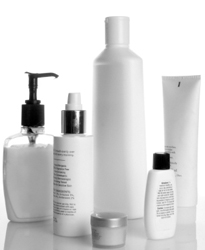Healthy Home Tips: Tip 1 - Know the ingredients in your personal care products
Better products are truthful in their marketing claims and free of potentially worrisome ingredients. Some products might make claims like "gentle" or "natural," but since the government does not require safety testing, personal care product manufacturers can use almost any chemical they want, regardless of risks.
How to read a label
Every personal care product must list its ingredients. Here's how to navigate the label:
Every personal care product must list its ingredients. Here's how to navigate the label:

- Start at the end, with preservatives. Avoid:
- Words ending in "paraben"
- DMDM hydantoin
- Imidazolidinyl urea
- Methylchloroisothiazolinone
- Methylisothiazolinone
- Triclosan
- Triclocarban
- Triethanolamine (or "TEA")
- Check the beginning of the ingredients lists, where soaps, surfactants, and lubricants show up. Try to avoid ingredients that start with "PEG" or have an "-eth" in the middle (e.g., sodium laureth sulfate).
- Read the ingredients in the middle. Look for these words: "FRAGRANCE," "FD&C," or "D&C."
For grown-ups
Many parents pay more attention to their kids' environmental health than their own, but adult bodies can be affected by toxic chemicals, too. EWG's Safer Shopping List has common-sense tips to reduce everyone's exposures. For instance, buy fragrance-free, skip the nail polish and use fewer products.
Many parents pay more attention to their kids' environmental health than their own, but adult bodies can be affected by toxic chemicals, too. EWG's Safer Shopping List has common-sense tips to reduce everyone's exposures. For instance, buy fragrance-free, skip the nail polish and use fewer products.
Just for kids
Extra caution is in order for kids because, pound for pound, they are exposed to more contaminants in everyday products than adults. Their immature metabolism and organ systems are typically less capable of fending off chemical assaults. Even subtle damage to young bodies can lead to disease later in life.
Extra caution is in order for kids because, pound for pound, they are exposed to more contaminants in everyday products than adults. Their immature metabolism and organ systems are typically less capable of fending off chemical assaults. Even subtle damage to young bodies can lead to disease later in life.
Follow EWG's top five tips for kids:

- Use fewer products and use them less often.
- Don't trust ad hype. Check ingredients.
- Buy fragrance-free products.
- Avoid the use of baby powder.
- Always avoid EWG's top six chemicals of concern for kids:
- 2-Bromo-2-Nitropropane-1,3 Diol
- BHA
- Boric acid and sodium borate
- DMDM Hydantoin
- Oxybenzone
- Triclosan
No comments:
Post a Comment